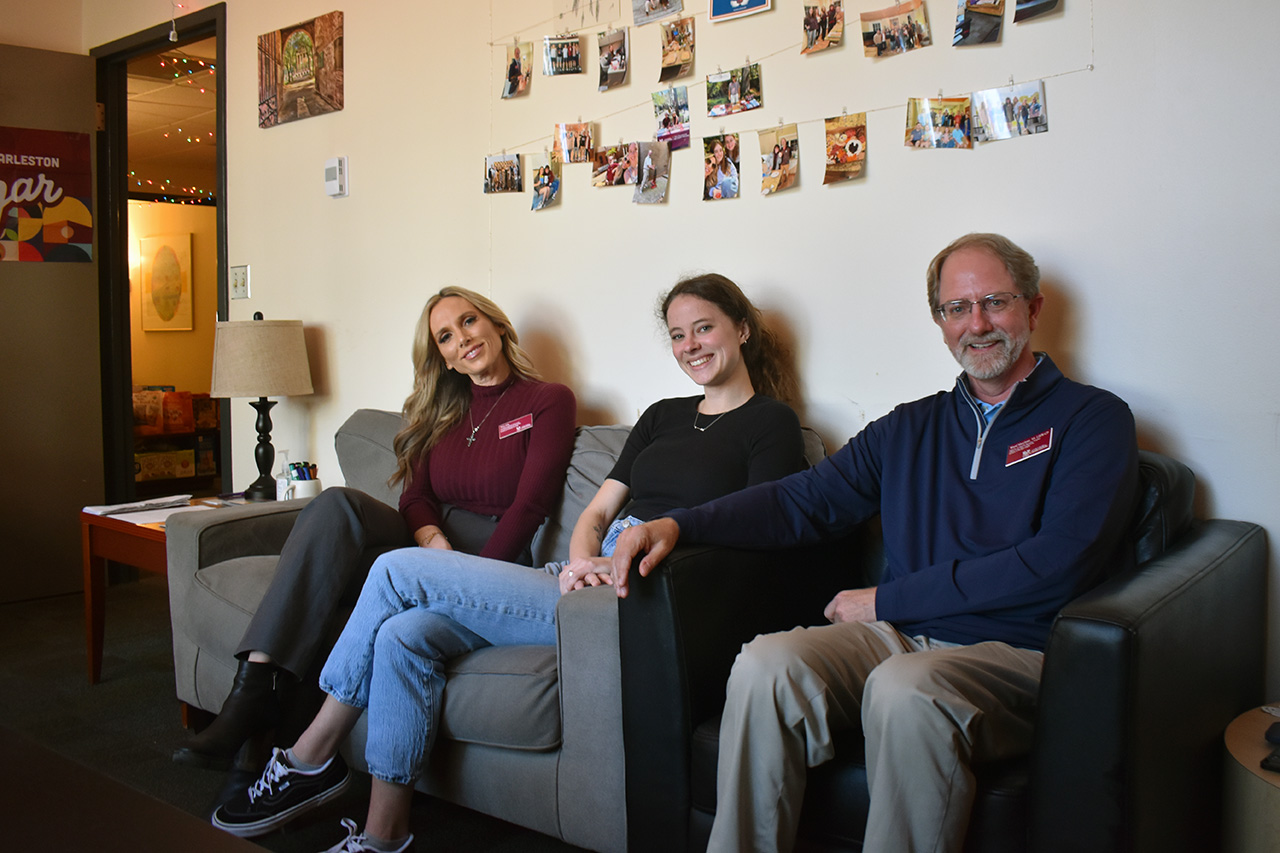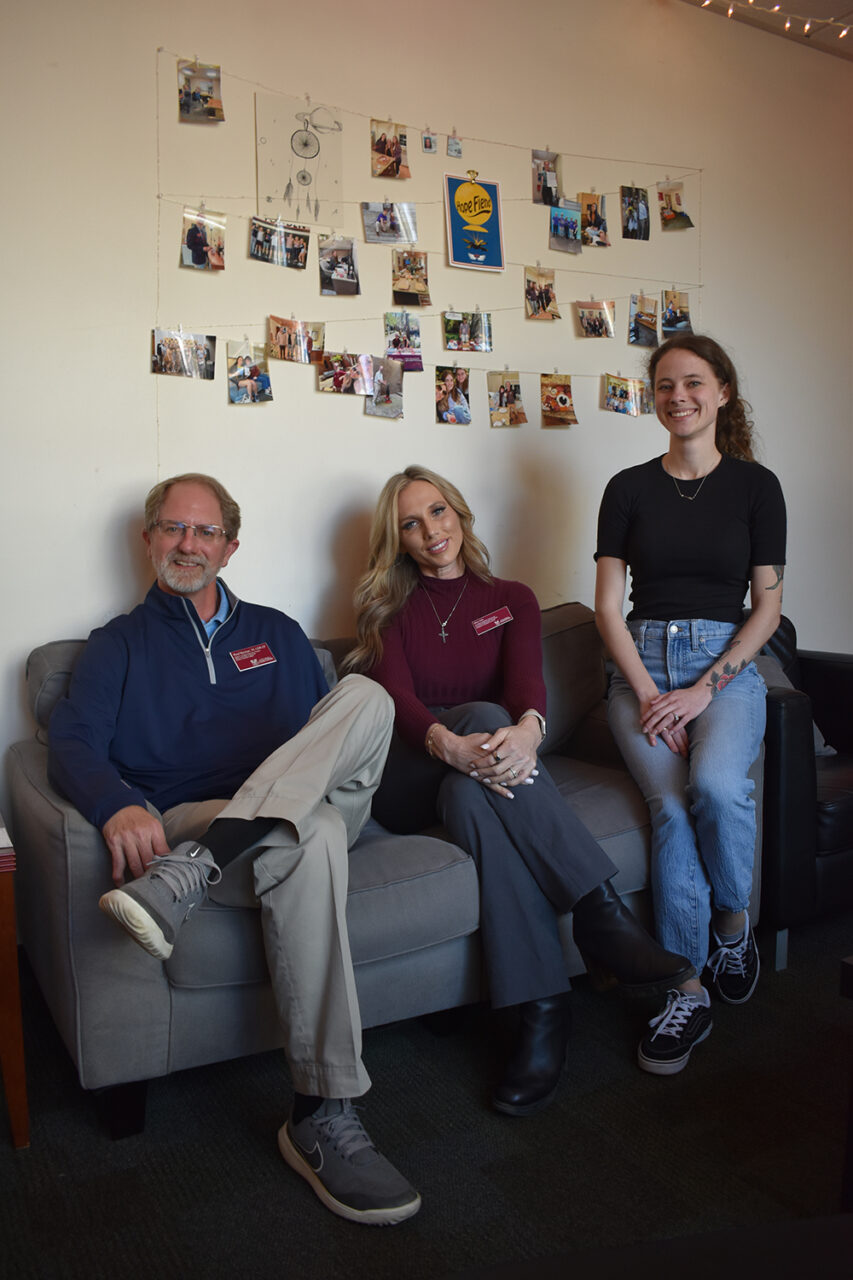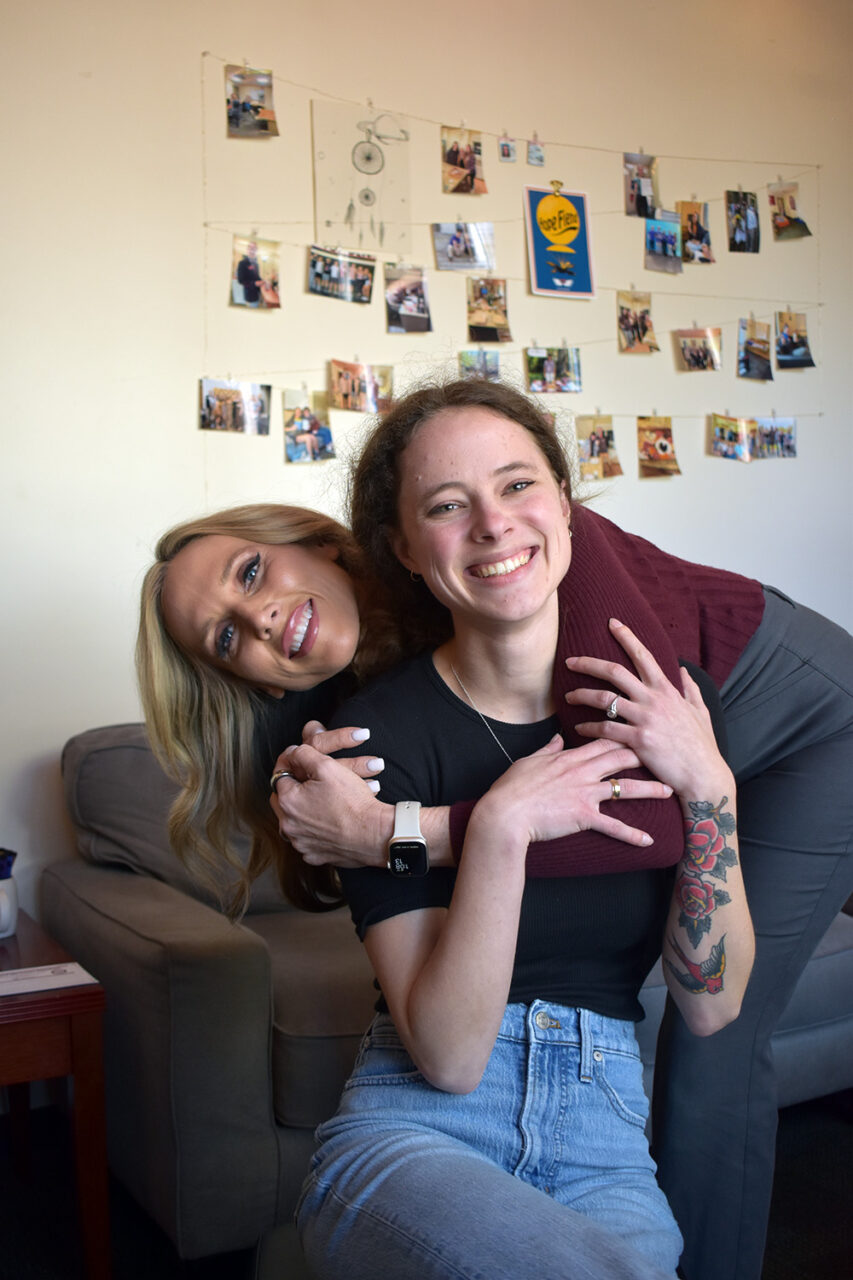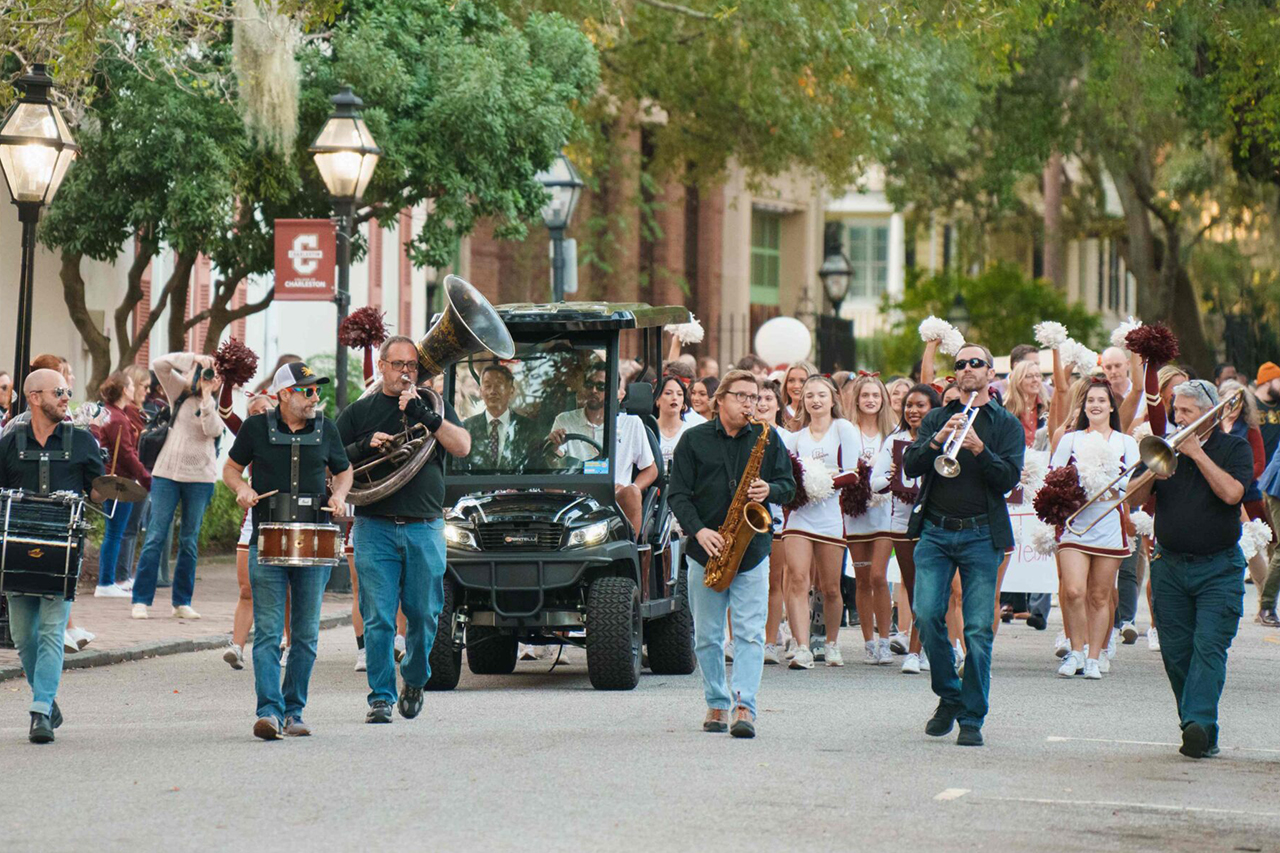Collegiate Recovery Program Thriving at the College of Charleston
The Collegiate Recovery Program – which provides students in recovery from substance abuse disorder and addictive behavior with the support they need to succeed – has been thriving ever since it launched in 2016.

Above (l-r) Hilary John, Kay George and Wood Marchant
The College of Charleston Collegiate Recovery Program has been making a positive impact on the campus since it started in 2016. Its success can largely be attributed to Wood Marchant ’89, the CRP’s director.
“If you would have told me that 35 years later I would come back to run a program for sober college students when I was most definitely not a sober college student, I would have said you have the wrong guy,” Marchant says. “And what in the world is a sober college student?”
Marchant’s journey to recovery began when, while attending an advertising school in Atlanta, Georgia, his excessive drinking and getting high started playing with his mental health and academics. He turned to a therapist for the help he needed and started his road to recovery. While navigating his newfound sobriety, he joined a mutual support group that would change his career path.
When Marchant heard about the opening for the College of Charleston Collegiate Recovery Program’s first director, he jumped at the opportunity to return to his alma mater.
The first program of its kind in the state of South Carolina, the CRP is a university-sanctioned and -supported program for students in recovery from substance abuse disorder and addictive behaviors. Offering recovering students a structured, healthy community where they can thrive academically and socially while actively pursuing their recovery, the program also gives students the opportunity to bond in an alcohol-free and drug-free environment.

“I want this to be a welcoming environment and a comfortable space for students, staff and parents to get the help they need,” explains Marchant, who has been pivotal to the growth of the program, but also credits donors for their unwavering support. “To have success, you need to have people who understand your mission, and these donors really understand the need for what we are doing.”
Strong donor support allows the program to host fun social events and offer students the opportunity to travel to conferences with other schools that have collegiate recovery programs.
The highlight of each year is the Graduation Dinner, which invites parents of the graduates along with campus and community partners and donors to honor the students who have earned their degrees. Often these students and their parents never thought they’d see a college graduation amidst their struggles with substance use disorder, so the celebration is a joyous one.
Kay George, a senior majoring in supply chain management and an active member of the CRP, has reaped the benefits of the CRP firsthand.
“It’s really cool to be able to have a place on campus where I feel safe,” says George, who first heard about the CRP through friends who had had a successful experience with the program. “I never realized how necessary having a safe place as a sober student was until I arrived on campus in ‘22. I look forward to going to the CRP lounge every day because it’s one of the only places I feel comfortable discussing my substance use disorder.
“It’s really nice to have a support system where I have peers and mentors who understand what it’s like to be sober, especially in their early 20s,” she continues. “My hope is to break the stigma surrounding addiction and substance abuse, as it often prevents individuals from seeking the help they need. By fostering open dialogue and education, you hope to make it easier for people to seek assistance without fear of judgment or labels.”
Marchant also is focused on open dialogue and education, often speaking with students about the dangers of addiction at New Student Orientation and at 18 middle and high schools around the Lowcountry.
Thanks to these efforts – and the support from the campus community and donors – the program has expanded, enabling the CRP to hire an academic support specialist, Hilary John, who joined the College in the fall of 2022.
“In May of 2022, my daughter came home very excited. She told me Wood came and talked to her psychology class at CofC and suggested I call him since she knew I was in recovery,” says John, who followed her daughter’s suggestion and was immediately invited to one of the CRP’s meetings. “I sat listening to everyone speak, and I got to meet some of the students. I loved the whole thing from the beginning. I just thought it was incredible what Wood was doing.”

John says she can relate to many of the students who are members of the CRP.
“I know exactly what they’re going through, but I also know what’s on the other side,” says John, who struggled with addiction from the time she was 15 years old until she was 20 years old. “When I went to college, it only got worse with more opportunities to abuse alcohol and drugs. My life began to spiral, and it was very hard to comprehend I had a problem in college because that was the culture.”
There was no collegiate recovery program to help her get sober at the time. Now 31 years sober, John was one of the fortunate ones who managed to overcome her addiction through a 12-step program.
“I have a very unique position here since I got sober in college,” says John. “There are so many students who are struggling who are too scared to get help or don’t know where to go for that help. I just want people to know we are here as a resource and would love to help if they or someone they know is struggling.”
“She is very passionate about helping others and intentional with anyone she crosses paths with,” says Marchant. “Students just love her.”
In fact, since John came on board, the CRP has seen its female membership increase by 50%. Together, John and Marchant have created a thriving CRP with 18 members – and with seeds planted among many more students – that is providing students with the support they need to succeed. They remain focused on providing a safe, supportive place for all who need it.
“There are many spinning plates that contribute to the Collegiate Recovery Program,” says Marchant. “One day we hope for everyone to have knowledge of the program, and also more funds to provide scholarships for our members on their journey.”



